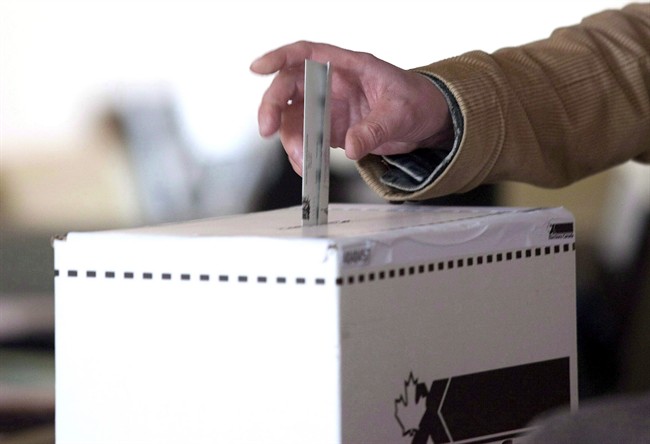OTTAWA – The chief enforcer of Canada’s election laws hopes to conclude an investigation into misleading robocalls during the 2011 federal campaign by next spring.

In his first annual report, elections commissioner Yves Cote said he’s aiming to finalize the investigation before March 31, 2014.
Cote also revealed that he’s been given additional resources to conduct investigations. But he’s also calling for changes to the Canada Elections Act to give him more power to pursue investigations into serious violations and to deal more quickly with minor regulatory infractions.
Cote is supported by an investigations directorate, which comprised six full-time employees in 2012-13: a director of investigations, three senior investigators, one paralegal and one administrative assistant.
However, he can at any time draw money from the government’s consolidated revenue fund to pay for additional non-permanent resources required to conduct investigations.
In 2012-13, Cote hired an additional seven investigators, one paralegal and two “enquiries officers,” at a cost of almost $850,000, the report says.
For the current year, he’s been given resources to hire three additional permanent, full-time investigators and a second paralegal.
Read More: Conservative Party lawyer directed robocall questions during investigation: documents
- Iran fires air defences at military base after suspected Israeli drone attack
- U.S. aid to Ukraine, Israel set to pass. But bills differ in one key area
- Carbon rebate labelling in bank deposits fuelling confusion, minister says
- Conservatives ask interference inquiry judge to rule elections were flawed
One person — Michael Sona, a junior staffer on the Conservative candidate’s campaign — has been charged in connection with automated calls in the Ontario riding of Guelph which misdirected voters to the wrong polling stations.
Cote says his office is dealing separately with thousands of complaints in more than 200 ridings across the country about automated or live calls, which either misdirected voters or appeared designed to annoy them into not voting at all.
At least three individuals refused to co-operate with the Guelph robocall investigation, Cote noted. That happens routinely, he said as he urged the government to give him the power to compel reluctant witnesses to co-operate with investigators, as his counterparts in six provinces are already empowered to do.
“If there is a genuine intent to facilitate and expedite the conduct of investigations in the electoral field, then this proposal must be seriously examined,” Cote writes in the report.
In the wake of the robocalls affair, the government has promised to introduce significant amendments to the Canada Elections Act.
More than 400 offences are covered by the act – ranging from minor infractions such as failing to meet a deadline for filing a report to more serious violations, like the robocalls, which undermine the core principles of ensuring free and fair elections.
Yet there is no flexibility to deal expeditiously with minor infractions, Cote complained. To impose any sanctions, he must lay charges and prosecute each offender in court, a costly and time consuming process that is usually not pursued.
“This is the proverbial case of a hammer being used to swat a fly,” he writes. “There is complete disproportion between the evil to be addressed in these cases and the means available to deal with it.”
He also called on the government to give him the power to impose administrative fines for minor violations of the act.
Cote’s proposed changes to the act echo those demanded by chief electoral officer Marc Mayrand.

Comments